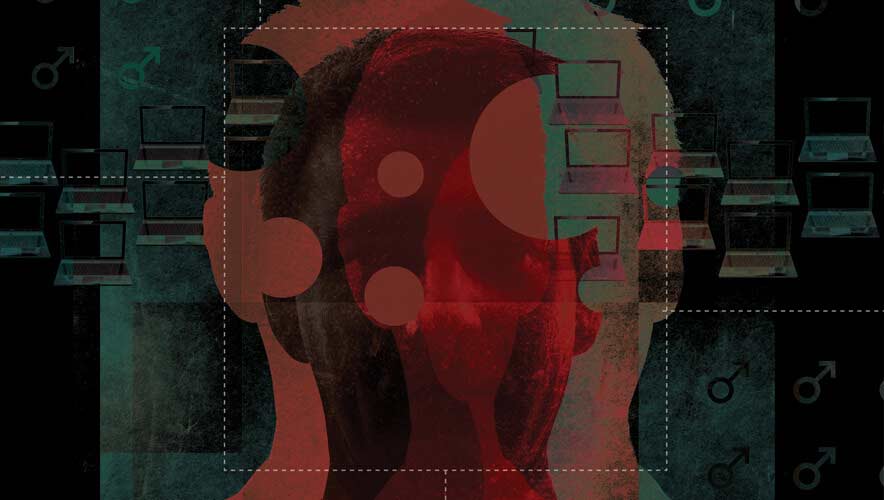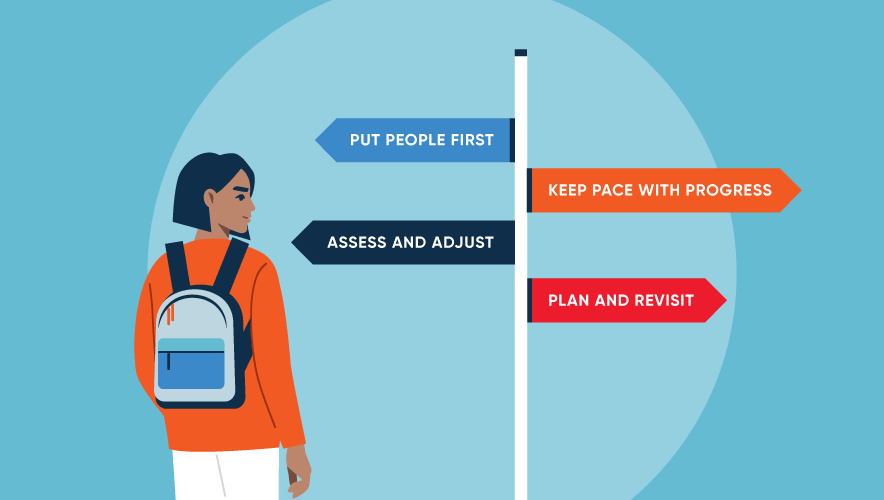Alone Together and Angry: An Incel Revolution
Recently designated a hate group by the Southern Poverty Law Center, Incels exist primarily as an online subculture espousing male supremacy and committing acts of violence against people who seem to have an easy time finding love and acceptance.
In 2014, Elliot Rodger killed seven people and injured 14 others in Isla Vista, California, striking back at those who would not permit him into their social circles. In a series of videos and a 141-page manifesto, Rodger blamed popular young women for his loneliness and the fact that he was still a virgin. In his writing, Rodger described himself as “the supreme gentleman” and fantasized about his retribution for the perceived wrongs that he suffered at the hands of popular and beautiful people. Today Elliot Rodger is not simply the name of a notorious mass murderer; in the language of Incels, it is also a verb, as in “the guy went Elliot Rodger” or “E.R.”
Incels, shorthand for involuntary celibates, exist primarily as an online subculture espousing male supremacy. Incel is not simply a form of self-identification, but rather an ideology and self-described movement of disaffected, disconnected, and angry individuals—primarily men—who have found justification for violence against people who seem to have an easy time finding love and acceptance. This extreme ideology was recently added to the list of designated hate groups by the Southern Poverty Law Center.
Rodger predicted an Incel revolution. In April 2018, 25-year old Alek Minassian heeded Rodger’s call to action and plowed a rented van into pedestrians along the streets of Toronto’s North York Centre, killing 10 and injuring another 16. Shortly before launching his attack, Minassian posted a message to Facebook that included the phrase “The Incel Rebellion has already begun!... All hail the Supreme Gentleman Elliot Rodger!” In November 2018, Scott Paul Beierle, 40, walked into Hot Yoga Tallahassee and opened fire, killing two people and wounding five others before turning the gun on himself. In YouTube videos posted in 2014, Beierle articulated misogynistic views, made resentful statements about women who would not date him, and identified with Incels.
Is it Terrorism?
There is a fine and often blurry line between hate crimes and terrorism. Increasingly, Incels are viewed as involved in a form of gender-based terrorism; ideologically motivated, with a clear social agenda. Incels are not simply men’s rights activists—they are much more dangerous. Incels place the blame on women for their misery, and in doing so provide the motivation and justification for acts of extreme violence. Much like other recognized extremist groups, there is a well-worn path leading from radicalization to mobilization. In many ways the path to becoming an Incel is no different from the path to other extremist groups like ISIS. The Internet has allowed isolated people to connect, which in turn can increase the potential for radicalization. Those in the Incel community are alone, but now they are alone together, and sharing a hateful message attractive to many, who like Rodger, harbor fantasies of revenge. To turn a phrase, the Internet allows them to form a pack of angry, lonely wolves.
“Loners” have long been associated with risk of violence. Whether in discussions about violence prevention or news reports of violent incidents, there is the perception that being alone raises the risk of violence. Although social isolation is a known risk factor, why someone is a loner is more important to understand than simply if they are a loner. There are many people who, by their nature, are more comfortable on their own than in groups or in relationships. There are others who try to break in to social groups, form relationships, and crave the acceptance the of others. However, due to their temperament, lack of social skills, or mental health issues, they are pushed away, and leave with feelings of anger and rejection. These individuals are not loners, but more accurately, incompetent joiners. The incompetent joiner is not necessarily prone to violence. Some, still seeking acceptance, find it in chat rooms and on social media platforms inhabited by others with a shared life experience.
Radicalization is characterized by a shift in opinions, attitudes, and beliefs, while mobilization is a shift in action. Within the Incel community and other extreme ideologies, many may become radicalized, but far fewer will mobilize. Those who mobilize are the ones seen in the news, but for every Incel that mobilizes, thousands are leading a lonely existence, connecting with the world primarily through their keyboards and computer screens. In online Incel communities, where the volume is loud and the language is vulgar, the incompetent joiners can easily become self-radicalized, and further radicalize each other. At this dangerous intersection, a personal grievance collides with an extreme ideology. Acceptance of this ideology can be a slippery slope because there is a powerful message that anyone who truly believes in the cause does not sit idly on their hands; they act. True believers are not talkers; they are doers. For some in the Incel community, Rodger’s writings and videos provide justification for violence and a call to action.
Workplace Violence
The current emphasis on efforts to address gender equality and eliminate sexual harassment in the workplace runs counter to the Incel belief that women are inherently inferior to men. The message of the #MeToo movement has further stoked feelings of aggrieved entitlement by some, who feel they are being denied the right to the affection and sex they deserve and blame women, rather than themselves, for their personal and professional failures.
While no workplace is immune from violence, there are some environments where there is greater exposure to the various types of violence, and some in which Incel-related violence may be more likely.
At this dangerous intersection, a personal grievance collides with an extreme ideology.
The shooter at Hot Yoga Tallahassee chose a populated and confined space with predominately female targets to open fire. George Sodoni did the same when he attacked a women’s aerobics class at the LA Fitness Center in a suburb of Pittsburgh in August 2009. Three women and the shooter were killed, and another nine injured. The gunman, who maintained a website that included his blog describing his inability to cultivate relationships and friendships, left a note in his gym bag expressing his hatred for women.
Regardless of whether the perpetrator of workplace violence is a disgruntled or disturbed employee, an angry customer or client, or someone motivated by an extremist ideology, employers must be aware of the risks and recognize the warning signs of someone on the pathway to violence. Just as it is important for employers to know the general preincident indicators of workplace violence and terrorism, it is important to be familiar with the specific behaviors and communications associated with Incels.
The Language of Incels
The Incel community occupies a dark corner of the Internet. In November 2017, Reddit banned the main online community of Incels for violation of its policy prohibiting content that calls for violence or physical harm. After exploring other alternative platforms, the Incel community eventually migrated back to Reddit while also launching Incel websites. The content of the discussions on these platforms remains misogynistic and violent.
Incels have developed a unique and complex lexicon. (See below.) Knowledge of this terminology can be helpful in identifying those who subscribe to this belief system or are radicalizing to a more extreme Incel view. It may also be useful in determining the level of concern about potential violence because some of the terminology has militaristic undertones.
Incels and Mental Illness
While involuntary celibacy is not a psychiatric diagnosis, and not all Incels are mentally ill, some people who self-identify as Incels do have mental disorders and some have physical disabilities. These physical and emotional conditions may lead to isolation and loneliness that can be an obstacle to meeting people and forming satisfying and healthy relationships. Across the entire spectrum of Incels, with or without diagnosable mental disorders, the most common emotion experienced is profound and painful loneliness.
It is important to recognize that research consistently supports the fact that people with mental illnesses are no more likely to be violent than other members of society. There are certain conditions, and symptoms of those conditions, that can increase the likelihood of violence. In the world of the Incel, an overwhelmingly male environment, there is a strong bias against seeking mental health treatment. Members of Incel forums who discuss depression often meet with encouragement for suicide or acts of mass violence followed by suicide.
Incels in the Threat Landscape
While misogyny and isolation are not new phenomena, the radicalized subculture of Incels has provided an added dose of justification for violence against women and romantically successful men. There are often themes of racism interlaced in the Incel worldview. While the first instances of Incel-inspired violence date back nearly three decades, today’s Incel community has become more extremist and violent through cross-population with other online hate groups and alt-right white supremacist male groups.
Stay Informed and Prepared with ASIS Membership
Sign up to learn more about ASIS membership.
There is agreement throughout the intelligence community that the greatest threat to the homeland at present is not necessarily foreign terrorist organizations, but rather homegrown violent extremists and lone actors of various ideologies, with domestic hate groups at the forefront. It will be increasingly necessary to understand the mindset, motives, language, and indicators of the Incel culture. The pathway to violence runs in both directions. Left unchecked, angry isolated Incels will remain in the margins of mainstream society, smoldering with resentment against those who have denied them the affection and satisfaction they feel they deserve. Early identification and intervention can turn a disaffected acceptance-seeker around, away from the siren song of radicalization, and toward effective ways of coping, communicating, and negotiating a place in society.
The Incel Dictionary
There are 125 different terms comprising the Incel dictionary. Across this narrow spectrum of attitudes within a sexist and entitled subculture, the most unifying elements are “red pills” and “black pills.” Adapted from elements of the 1999 science fiction movie, The Matrix, Incels refer to a red pill as a person who is said to have awakened to the fact that society discriminates against men, not women. The black pill represents the idea that that, if someone is considered physically unattractive, they are unworthy of love; therefore, any attempts to form lasting relationships are not only destined to end in failure but are probably going to result in even greater unhappiness. Other significant Incel terminology includes:
Alphas: High-status males who get all the sex they desire because they have controlling and socially-dominant personality styles that all females are irresistibly attracted to.
Betas: Betas are males who are somewhat inept in relationships with females and thus don’t get enough sex.
Beta uprising: The uprising predicted to happen when betas and omegas become filled with rage and collectively commit acts of violence.
Blackops2cel: A man whose photo Incels have taken as an icon of their community; someone emblematic of what an Incel looks like.
Chad: The archetypal alpha and perennial object of the Incel’s envy and resentment.
ER - Elliot Rodger: The 22-year old man who shot and killed multiple people in Isla Vista, California, in 2014, and author of a manifesto that blamed the women who had rejected him for causing him to commit murder. Known as Saint Elliot, he is revered as a martyr on Incel forums.
Hypergamy: A term borrowed from biology used to describe the phenomenon of females mating with males of higher status.
Incel: Involuntarily celibate, a term originally coined by a Canadian feminist, now used almost exclusively by men to describe people who want to have sex, but cannot, due to reasons beyond their control.
LDAR: A directive to “lie down and rot,” or just give up hope of being involved in a sexual relationship.
MGTOW: “Men going their own way,” an alternative to being celibate against one’s will. Analogous to the sovereign citizen movement, they reject the idea of seeking a romantic partner as a sovereign citizen might reject the federal government.
NEET: A person who is “not in education, employment, or training” or having zero status in society.
Normie: Anyone who is normal; average-looking and of average intelligence.
Omega: A male who has no prospects for sexual relationships, and who is on the lowest rung of the Incel’s imaginary sexual hierarchy.
Stacy: A woman who allegedly has her pick of sexual partners; an unattainable female ideal that is targeted for revulsion and perhaps even violence.
Wizard: Someone who is a virgin at the age of 30 or older.
Stopping Incel Violence
Like others who may be on a pathway to violence at work, on campus, or in the community, Incels share some common attitudes, beliefs, and behaviors that can serve as warning signs or preincident indictors.
Indicators that are shared with others, but not exclusive to Incels include:
- The “grievance collector;” chronic victimhood
- Externalized blame for their unhappiness or distress
- Relationship problems
- Depression or withdrawal
- Paranoia, or concerns that others are trying to cause harm or limit their success
- Hopelessness
- Rage, anger, seeking revenge
- Feeling trapped
- No reason for living; no purpose in life
- Self-identification as a warrior, pseudo commando, or agent to advance a particular cause or belief system
- Militarized style of dress or speech
- Expression that violence is necessary or justified
- Indicating an intent to mobilize or take action
Indicators unique to Incels include:
- Self–identification as an Incel
- Adoption of Incel terminology and worldview
- Empathy with others who have committed violent misogyny
- Participation in chat rooms and online communities espousing violence toward women or successful men
- Extreme social awkwardness, social anxiety, or body dysmorphia
- Perception of unattractiveness or undesirability
- Overt anger or resentment toward women
- Indications of preoperational hostile surveillance of places frequented or populated primarily by women
These are the signals of someone who needs help. Employee Assistance Programs, campus counseling centers, and emotional support helplines all can be sources of support for someone trying to cope with isolation and rejection. Although help is available, the gravitational pull of an extreme ideology can make it difficult for some people to break free and explore alternative ways of thinking or interacting with the world around them.
Steven Crimando is the principal of Behavioral Science Applications, a training and consulting firm focused on human factors in crisis prevention and response. He is a Board-Certified Expert in Traumatic Stress (BCETS) and a consultant for corporations, government agencies, police, and military programs.












